Not all proteins are the same when it comes to weight loss.
Whey is well-suited to support muscle health during weight loss.
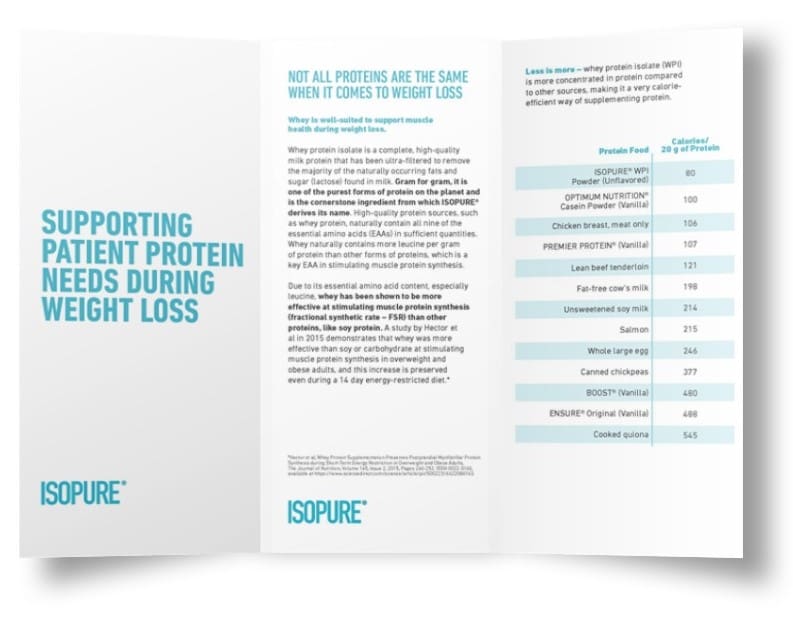
Whey protein isolate is a complete, high-quality milk protein that has been ultra-filtered to remove the majority of the naturally occurring fats and sugar (lactose) found in milk. Gram for gram, it is one of the purest forms of protein on the planet and is the cornerstone ingredient from which ISOPURE® derives its name. High-quality protein sources, such as whey protein, naturally contain all nine of the essential amino acids (EAAs) in sufficient quantities. Whey naturally contains more leucine per gram of protein than other forms of proteins, which is a key EAA in stimulating muscle protein synthesis.
Due to its essential amino acid content, especially leucine, whey has been shown to be more effective at stimulating muscle protein synthesis (fractional synthetic rate – FSR) than other proteins, like soy protein. A study by Hector et al in 2015 demonstrates that whey was more effective than soy or carbohydrate at stimulating muscle protein synthesis in overweight and obese adults, and this increase is preserved even during a 14 day energy-restricted diet.*
Less is more – whey protein isolate (WPI) is more concentrated in protein compared to other sources, making it a very calorie efficient way of supplementing protein.
| Protein Food | Calories/20 g of Protein |
|---|---|
| ISOPURE® WPI Powder (Unflavored) | 80 |
| OPTIMUM NUTRITION® Casein Powder (Vanilla) | 100 |
| Chicken breast, meat only | 106 |
| PREMIER PROTEIN® (Vanilla) | 107 |
| Lean beef tenderloin | 121 |
| Fat-free cow’s milk | 198 |
| Unsweetened soy milk | 214 |
| Salmon | 215 |
| Whole large egg | 246 |
| Canned chickpeas | 377 |
| BOOST® (Vanilla) | 480 |
| ENSURE® Original (Vanilla) | 488 |
| Cooked quiona | 545 |
| Calories | Protein | Fat | Sugar (lactose) | |
|---|---|---|---|---|
| 20g whey protein isolate | 90 | 20g | 0g | 0g |
| 1 baked chicken breast | 70 | 15g | 1g | 0g |
| 1 large boiled egg | 80 | 6g | 5g | 1g |
| 1 oz unsalted almonds | 170 | 6g | 15g | 1g |
| 1 cup plain Greek yogurt | 130 | 23g | 1g | 7g |
| 1 cup skim milk | 80 | 8g | 0g | 12g |
Calories
| 20g whey protein isolate | 90 |
| 1 baked chicken breast | 70 |
| 1 large boiled egg | 80 |
| 1 oz unsalted almonds | 170 |
| 1 cup plain Greek yogurt | 130 |
| 1 cup skim milk | 80 |
Protein
| 20g whey protein isolate | 20g |
| 1 baked chicken breast | 15g |
| 1 large boiled egg | 6g |
| 1 oz unsalted almonds | 6g |
| 1 cup plain Greek yogurt | 23g |
| 1 cup skim milk | 8g |
Fat
| 20g whey protein isolate | 0g |
| 1 baked chicken breast | 1g |
| 1 large boiled egg | 5g |
| 1 oz unsalted almonds | 15g |
| 1 cup plain Greek yogurt | 1g |
| 1 cup skim milk | 0g |
Sugar (lactose)
| 20g whey protein isolate | 0g |
| 1 baked chicken breast | 0g |
| 1 large boiled egg | 1g |
| 1 oz unsalted almonds | 1g |
| 1 cup plain Greek yogurt | 7g |
| 1 cup skim milk | 12g |
The high protein concentration of whey protein isolate is also helpful for people who struggle to eat enough, such as those with limited appetites.
Amount of food required to provide 20 grams of protein.^
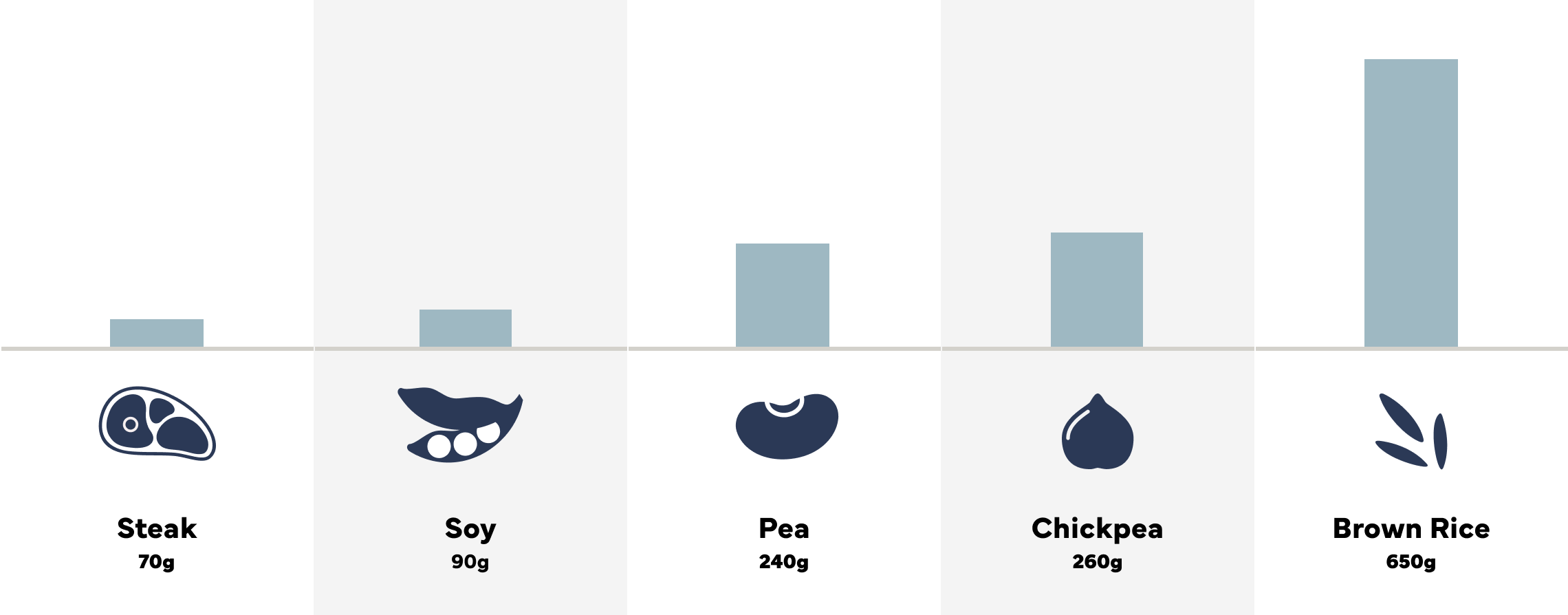
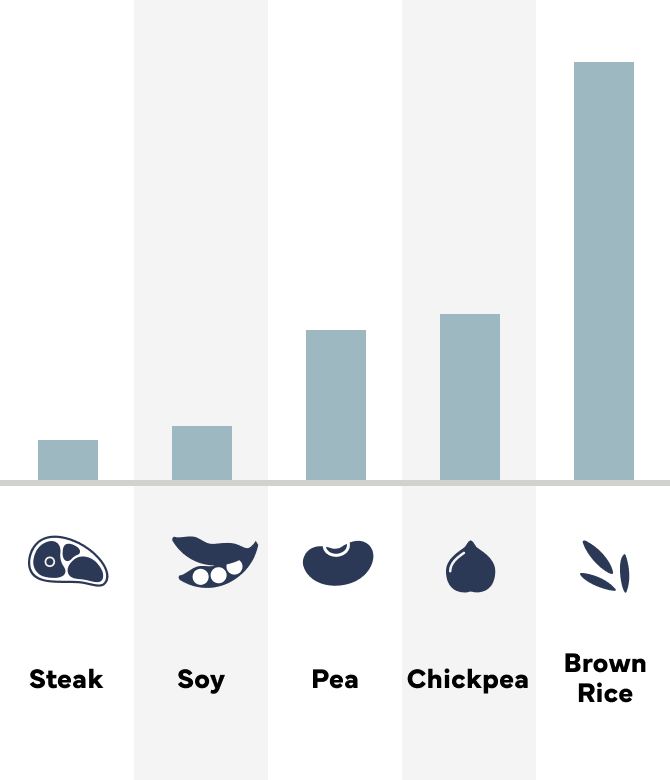
To preserve muscle mass, protein recommendations during weight loss are up to 2x HIGHER
During weight loss, as much as 33% of weight lost may come from muscle. Muscle mass isn’t just important for athletes and gym-goers – it’s essential for activities of daily living. Studies show increased protein intakes during weight loss preserve muscle mass, leading to more favorable body compositions at the end of the weight loss period. For these reasons, protein recommendations are much higher for people losing weight.
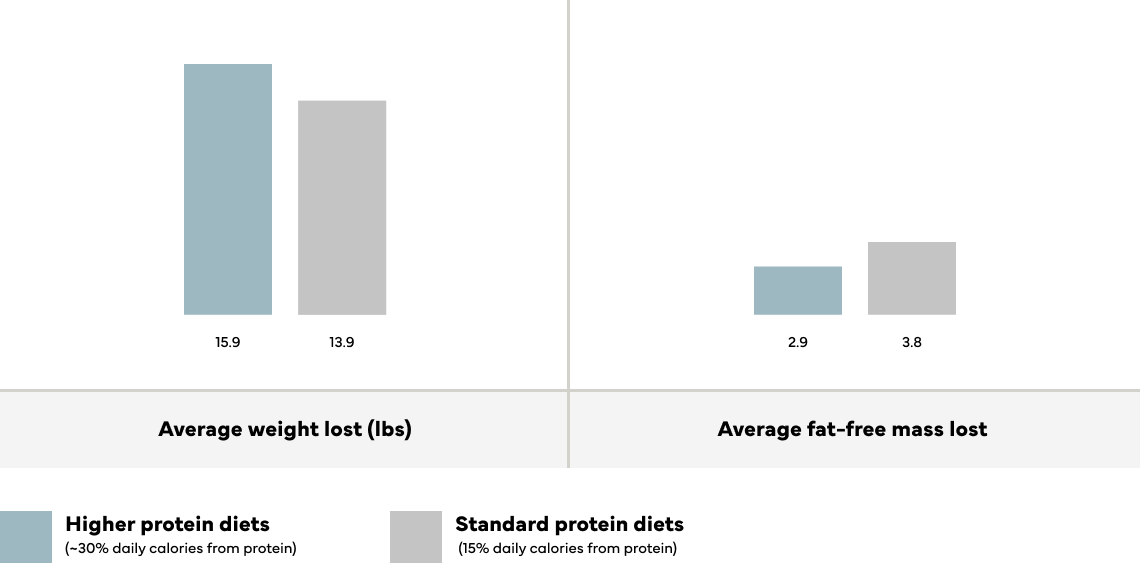
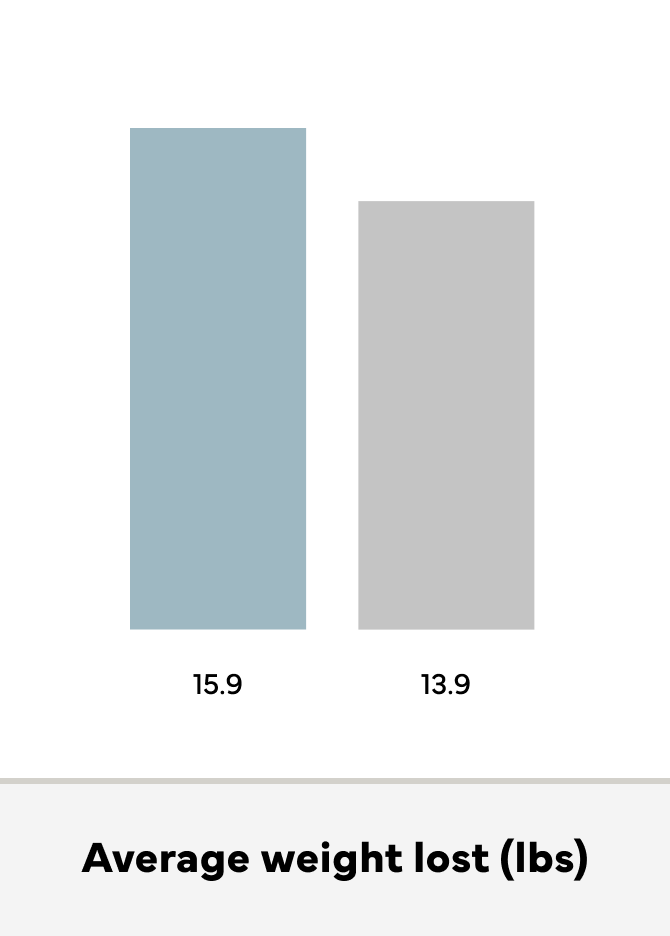
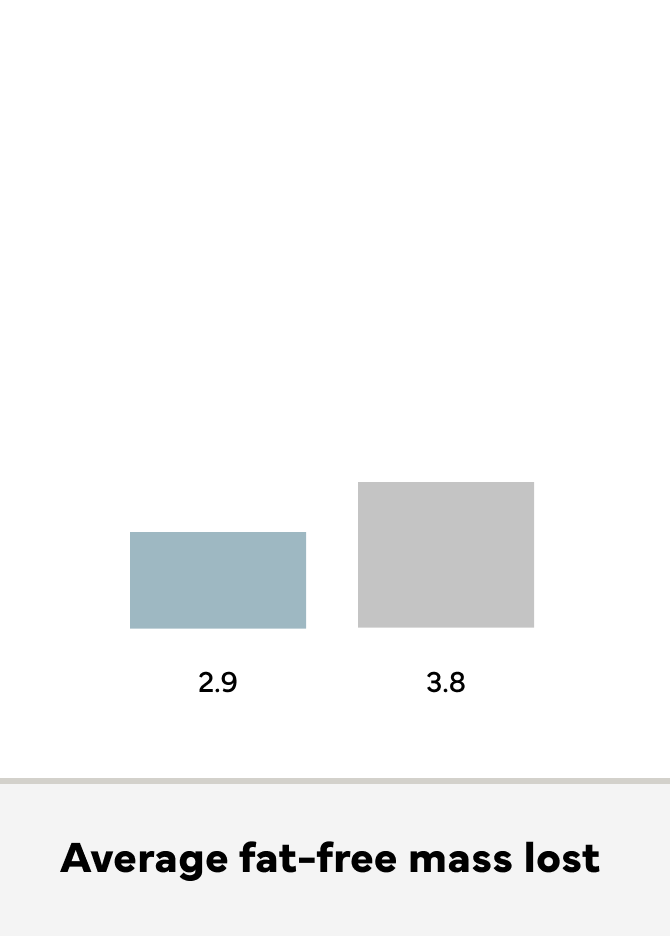
Higher protein weight loss diets lead to similar or greater weight loss while preserving more fat-free mass than standard protein weight loss diets.1
Protein recommendations, such as those from the Academy of Nutrition and Dietetics Nutrition Care Manual or findings from systematic reviews2, can be 50%-100% higher for people losing weight than the standard recommendation of 0.8 g/kg/body weight per day, with older adults, athletes, and those undergoing very-low calorie diets needing the most protein during weight loss.
| Condition | Protein requirement (% of normal requirement) |
|---|---|
| Average requirement | 100% |
| Aging | 150% |
| High activity | 150% |
| Weight loss | 200% |
However, according to the National Health and Nutrition Examination Survey (NHANES), intakes of protein are typically lower than these recommendations. Protein supplementation can be an effective way to bridge the gap for those who have trouble eating enough protein from food.

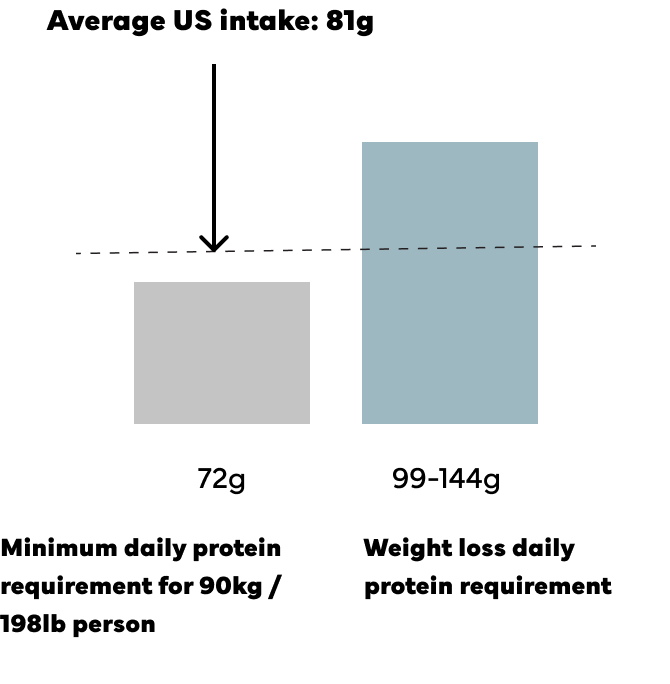
Protein supplementation can help meet increased protein needs

1 Tablespoon of ISOPURE® Zero Carb Unflavored Protein Powder = 5g protein
(Add to oatmeal, dips, scrambled eggs, mashed potatoes)


Half scoop = 12.5g protein
(Add to yogurt, soups, sauces, casseroles)


Whole scoop = 25g protein
(add to smoothies, protein shakes, recipes)

References:
1Hector et al, Whey Protein Supplementation Preserves Postprandial Myofibrillar Protein Synthesis during Short-Term Energy Restriction in Overweight and Obese Adults, The Journal of Nutrition, Volume 145, Issue 2, 2015, Pages 246-252, ISSN 0022-3166, available at https://www.sciencedirect.com/science/article/pii/S0022316622086163
2Wycherley TP, Moran LJ, Clifton PM, Noakes M, Brinkworth GD. Effects of energy restricted high-protein, low-fat compared with standard-protein, low-fat diets: a meta-analysis of randomized controlled trials. Am J Clin Nutr. 2012 Dec;96(6):1281-98. doi: 10.3945/ajcn.112.044321. Epub 2012 Oct 24. PMID: 23097268. Available at https://pubmed.ncbi.nlm.nih.gov/23097268/.
*Heather J Leidy, Peter M Clifton, Arne Astrup, Thomas P Wycherley, Margriet S Westerterp-Plantenga, Natalie D Luscombe-Marsh, Stephen C Woods, Richard D Mattes, The role of protein in weight loss and maintenance, The American Journal of Clinical Nutrition, Volume 101, Issue 6, 2015, Pages 1320S-1329S, ISSN 0002-9165, https://doi. org/10.3945/ajcn.114.084038.
^Modified from Pinckaers, P.J.M., Trommelen, J., Snijders, T. et al. The Anabolic Response to Plant-Based Protein Ingestion. Sports Med 51 (Suppl 1), 59–74 (2021). Available at https://doi.org/10.1007/s40279-021-01540-8


